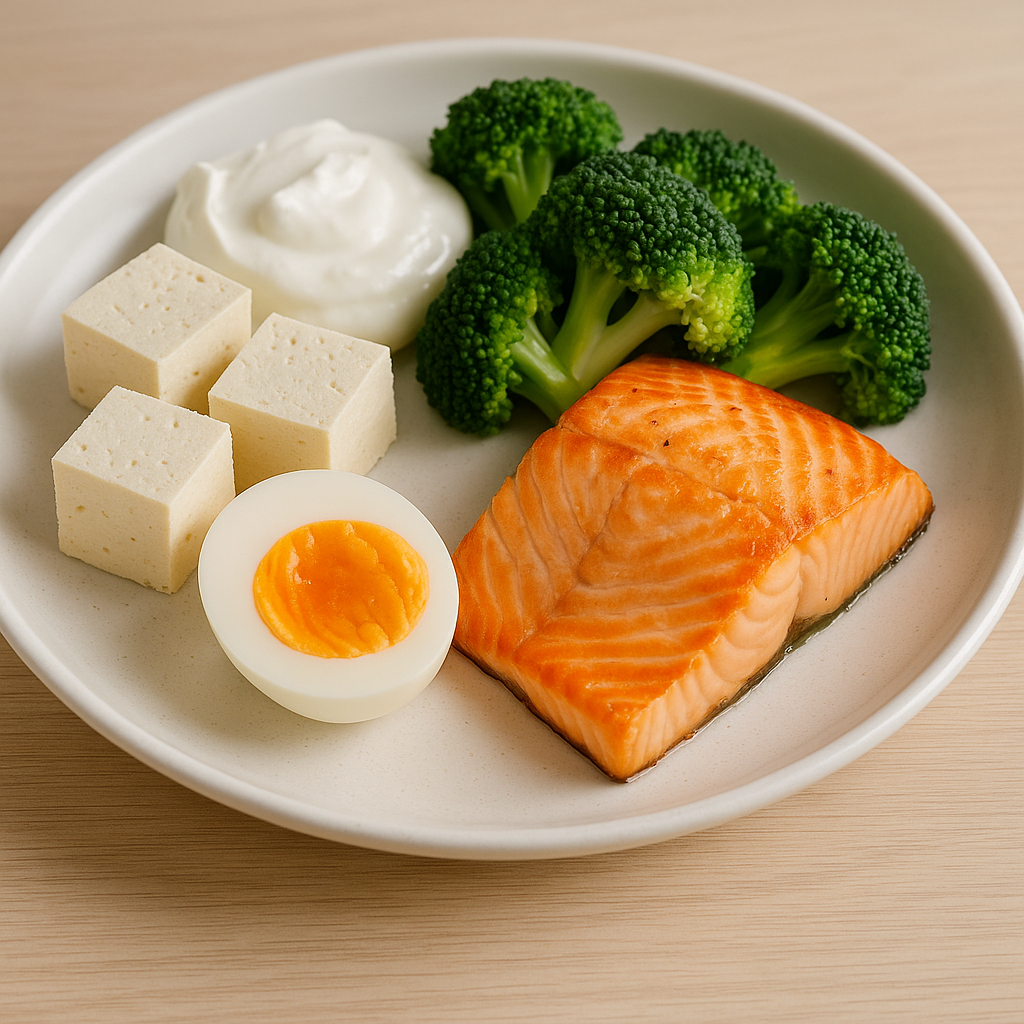Do you ever wonder if you’re getting enough protein, calcium, vitamin D, or B12 from food alone? Many people try to meet these needs naturally but still fall short due to busy schedules or limited food variety. This guide may help you fill those nutrient gaps gently through food before turning to supplements.

1. Protein: Strength and Recovery
Protein builds muscle, supports metabolism, and helps repair tissues. You can cover most of your daily needs with simple meals.
- Eggs and Greek yogurt: high-quality protein for breakfast or snacks.
- Chicken breast, fish, and lean beef: reliable staples for muscle support.
- Tofu, tempeh, edamame: excellent plant-based proteins for steady energy.
- Lentils, chickpeas, and beans: fiber-rich and satisfying options.
- Quinoa and buckwheat: grains with complete amino acids.
2. Calcium: Bone and Nerve Support
Calcium keeps bones strong and supports muscle contraction. You can find it in both dairy and plant-based foods.
- Fortified soy or almond milk: 250–300 mg calcium per cup.
- Tofu made with calcium sulfate: a top choice for plant-based eaters.
- Sardines and canned salmon (with bones): natural calcium sources.
- Kale, bok choy, broccoli: vegetables that may aid gentle calcium absorption.
- Yogurt and cheese: classic dairy options for daily intake.
3. Vitamin D: Sunshine in Food Form
Vitamin D may help regulate mood, bone strength, and immunity. Because sunlight exposure changes by season, food or fortified sources can help.
- Salmon, mackerel, tuna: naturally rich in vitamin D.
- Egg yolks: small but steady doses of D3.
- Fortified milk and cereals: easy daily options.
- UV-exposed mushrooms: useful for vegan diets.
4. Vitamin B12: Energy and Focus
Vitamin B12 supports red blood cells and brain function. It’s mostly found in animal foods, so fortified products can be helpful for plant-based diets.
- Fish, eggs, and dairy: reliable natural sources.
- Fortified plant milks and cereals: simple daily coverage.
- Nutritional yeast: adds flavor and offers active B12.
5. Smart Combinations
- Vitamin D + Calcium: may work better together for bone support.
- Protein + Fiber: may help maintain steady energy levels.
- Mix sources: alternating plant and animal foods helps balance nutrients naturally.
🌟 Conclusion
You don’t need to rely on multiple supplements to stay balanced. With mindful food choices rich in protein, calcium, vitamin D, and B12, you may naturally support energy, focus, and overall strength. When in doubt, a simple lab test and professional guidance can help tailor your needs.
References and Further Reading
- NIH Office of Dietary Supplements — Calcium
- NIH Office of Dietary Supplements — Vitamin D
- NIH Office of Dietary Supplements — Vitamin B12
- USDA FoodData Central
- Harvard Nutrition Source
Disclaimer
This article is for informational purposes only and not medical advice. Individual nutrient needs may vary depending on diet, age, and health conditions.